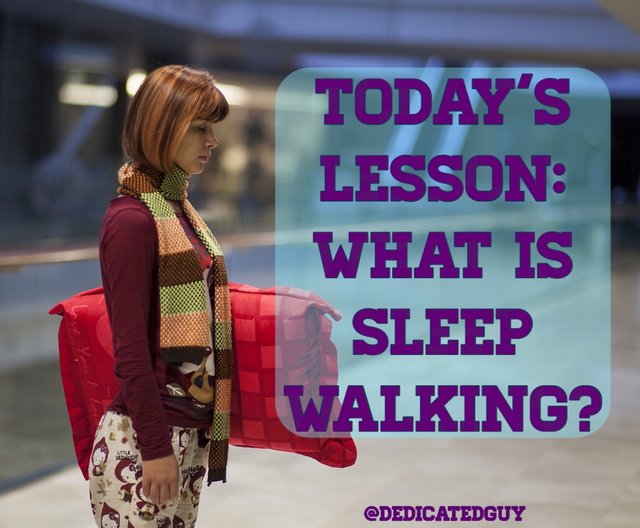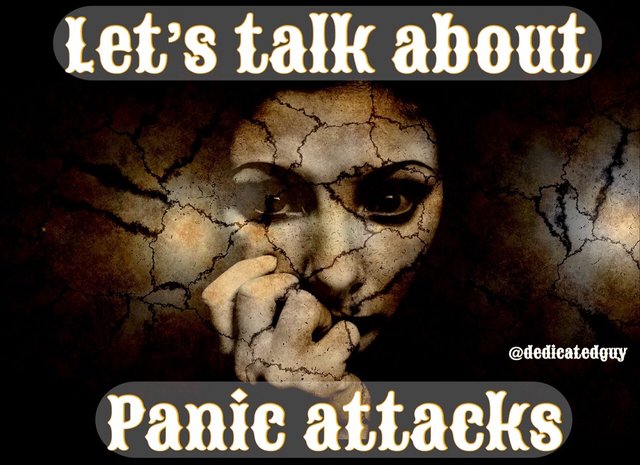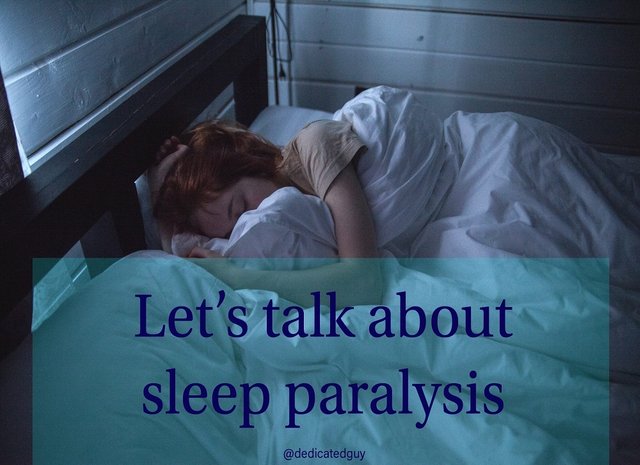Today’s lesson: What is sleepwalking?


Introduction
The previous article was about sleep paralysis, and today we are going to cover another sleep disorder, this time it will be sleepwalking.

Sleepwalking is a very popular disorder, not because it happens to a lot of people, but because its intense use in entertainment content, like kid cartoons, where it is common to see a character walking while being sleep keeping its arms horizontally and making the famous pose we all have seen at least once.
But people that sleepwalks in reality, walk in a normal way with their arms by their side without making any pose whatsoever, they don’t have any memory of what they did, and if it weren’t for other people telling them they sleepwalked, they would have no idea about actually doing something like this.

Understanding sleepwalking
Sleepwalking is defined as:
is a behavior disorder that originates during deep sleep and results in walking or performing other complex behaviors while asleep. It is much more common in children than adults and is more likely to occur if a person is sleep deprived. Because a sleepwalker typically remains in deep sleep throughout the episode, he or she may be difficult to awaken and will probably not remember the sleepwalking incident. | Source
Sleepwalking is characterized by a complex action behavior (walking) during sleep. Occasionally, the person may talk, but it does not make sense. The person's eyes are commonly open, but have a characteristic glassy "look right through you" character. | Source

Sleepwalking is a problem that consists in the person getting up and actually doing a concrete action while remaining asleep. It can happen in adults especially due to some factors such as psychological disorders, diseases, alcohol consumption or drugs. When this happens in adulthood, it is necessary to find out what is the specific reason and start taking the necessary measures to resolve the situation in order to improve the person’s quality of rest. Most times it is enough to adopt some preventive measures and modify some habits that might be triggering this issue.
When having one of these episodes the brain is partially awake but not completely, this is why people despite being in a dream situation at the brain level, carry out actions that are normally done when one is awake.
This disorder happens specifically in the Non-REM N3 phase, one of the phases of sleep in which brain activity is slower. In general, the sleepwalker gets out of bed and wanders through elaborated actions without leaving his deep sleep state. While he is asleep, he can get up, sit on the bed, go to another room, touch and manipulate items, change clothes, and even get out on the street.
N3 sleep is a period of deep sleep that is needed for an individual to feel refreshed for the next day. A person typically spends more time in the N3 stage during the first half of sleep than the second half, but why this happens is not known. | Source

The problem with sleepwalking in adults is that it can be more dangerous because, in many cases, it is associated with violent behaviors during sleep capable of harming the affected person and of course, the people who are close to him at that moment, an adult is someone much more capable when comparing him to a child, and the things an adult can do are therefore, potentially much more disastrous, imagine for example an adult turning on the gas stove while sleepwalking and leaving it like that.
Take for example; a sleepwalker can actually commit crimes like murder while sleeping. It often becomes a challenge to the juries so as how suspect can do so much including driving normally but not distinguish the person he or she is attacking while sleepwalking. To further note it, the sleepwalkers do not seem to be able to perceive sound made by their victims when they cry out for help during a sleepwalking violence scenario. | Source
There has actually been cases in which a person claimed to be a sleepwalker, and use that as a defense in his murder trial, successfully avoiding being convicted as a murderer, which is an important proof of how dangerous can sleepwalking be.

Some of the most important causes of this issue are the following:
- Sleep deprived
- On a chaotic sleep schedule
- Stressed
- Drunk
- Taking drugs such as sedative-hypnotics (which promote relaxation or sleep), neuroleptics (used to treat psychosis), stimulants (which boost activity), and antihistamines (used to treat symptoms of allergy)
- Nighttime seizures
- Obstructive sleep apnea (a condition in which you briefly stop breathing during sleep)
- Restless leg syndrome
- Psychiatric disorders, for example, posttraumatic stress disorder, panic attacks, or dissociative states, such as multiple personality disorder. | Source

Depending on the age of the person, another factor to take into account is the possible presence of neurodegenerative diseases such as Parkinson's and Alzheimer's. They are called like that because, as their name implies, they progressively damage the nervous system. Therefore, if the person is old enough and is experiencing episodes of sleepwalking, the real cause might be the decrease in mental functions due to the suffering of one of these diseases, which means sleepwalking would not be the principal issue, but rather a consequence of another more serious problem.
In a similar way as sleep paralysis, sleepwalking usually lasts for just a few minutes, in which they get up, open their eyes while keeping a blank look, and then this is when they start to creep out people that might be watching them, because now they will start doing random things and speaking nonsense while they are at it, maybe superstitious people would think the person doing this is possessed, but the truth is this person is simply experiencing a mixed state, between being awake and being sleep, resulting in a behavior totally abnormal but with its proper explanation.
The morning after the episode, it is expected for the person to feel very tired because his sleep is being disturbed by this disorder which obviously avoids him having a proper rest, therefore, this disorder can eventually become a serious problem if it starts to constantly affect the performance of the individual regarding his professional activities and overall productivity, besides, since the person starts to move around the house, he can also disturb the rest of the family creating an environment in which no one is able to have a proper night time, a dynamic like that is clearly unsustainable in the long term, because no one can endure a situation in which the resting period is full of constant disturbances.

It is not dangerous to awaken a sleepwalker, although it is common for the person to be confused or disoriented for a short time upon awakening. Another misconception is that a person cannot be injured when sleepwalking. Actually, injuries—caused by tripping and loss of balance—are common for sleepwalkers. | Source
This is why depending on the impact sleepwalking is having on the person and everyone living in the same home, it would be wise to start looking for solutions as soon as the episodes become a constant occurrence.
People suffering from sleepwalking can start to fix their situation by having a more disciplined approach regarding their sleep schedule, and making sure to reduce or better yet, completely eliminate, every element that might disturb them when they are sleeping. But if the episodes are recurrent, it would be smart to take some precautions like avoiding sleeping in a high bed, properly closing windows and doors, hiding cables and objects that may cause people to fall or bump, blocking stairs or put security doors, and pretty much any measure that can protect the person from causing an accident while sleepwalking.

Conclusion

Sleepwalking is one of the most extremes sleep disorders there are, causing the person to move around the house and doing things as if he were awake, but without actually being awake.
It can certainly be scary for any person to see a family member acting in an inexplicable and erratically way, and since these issues mostly happen at night when the person is sleeping, it makes everything even more difficult to handle, and is one of the reasons that explains why some people think this is a paranormal event.
But sleepwalking is a disorder with its proper explanation and extensive researches backing up said explanations.
Have you ever encounter a sleepwalker? If so, how did you react?
References
sleepfoundation – sleepwalking
ukessays - sleepwalking and psychology
nature – neurodegenerative diseases
psychologytoday - sleepwalking
Images sources
All images are from pixabay and pexels
1 , 2 , 3 , 4 , 5 , 6 , 7 , 8 , 9 , 10

If these titles sound interesting to you, I assure you the articles will be even better!


Let’s talk about panic attacks |

Let's talk about sleep paralysis |

"Understanding vicarious embarrassment. Feeling shame for others." |
Hi @dedicatedguy!
Your post was upvoted by utopian.io in cooperation with steemstem - supporting knowledge, innovation and technological advancement on the Steem Blockchain.
Contribute to Open Source with utopian.io
Learn how to contribute on our website and join the new open source economy.
Want to chat? Join the Utopian Community on Discord https://discord.gg/h52nFrV
Good article. I don't sleep walk but do occasionally get sleep paralysis. To break the paralysis you just need to jerk your head from side to side or up and down as these muscles still kind of still remain until your control. Once you do that the rest of your body muscles come back into your control.
That sounds easy, although people might not be able to do that since they are paralyzed, but if it happens they can move their head then it will indeed be easier to fully wake up.
nice one @dedicated guy. never knew stress is one of the causes..
The truth is stress can cause all sort of issues, including this one.
during sleep the body is at rest and normally movement shouldn't occur because certain hormones are secreted by the brain to paralyse voluntary muscles. if voluntary muscles are not paralysed we tend to act out our dreams in reality .
What you are saying is correct mate, thanks for stopping by.
This is a fun topic! Thanks for sharing. I've only hear stories of folks sleepwalking - never experienced for myself.
Yes experiencing this is actually quite rare.
Cheers!